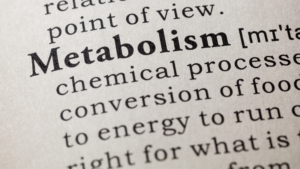Hey hey, you cool cats!
I know I have been MIA for more than a few weeks. I have some pretty good excuses that include finally coming down with COVID. Then I managed to develop a cold which then turned into sinusitis. On top of all that, I quit my nice cushy, guaranteed income of a day job, and like a good millennial who is still learning to deal with the feels and the overwhelming nature of my existence relying solely on me and me alone, I definitely procrastinated a bit.
Nonetheless, we are back and hopefully a little more resilient!
So let’s jump into today’s topic, which is a concern I see coming up a lot: fatigue with the GLP-1 receptor agonists such as Wegovy, Ozempic, and Saxenda.
Even in the clinical trials, fatigue was reported as a common side effect, especially with Wegovy – which if you remember is semaglutide the molecule that is in Ozempic just at a higher dose of 2.4mg once weekly.
What is fatigue?
 Before we get too much further, what exactly do we mean when we say ‘fatigue’:
Before we get too much further, what exactly do we mean when we say ‘fatigue’:
According to the Mayo Clinic, fatigue is defined as an unrelenting exhaustion that is not relieved by rest. A nearly constant state of weariness that develops over time and reduces your energy, motivation, and concentration. It can also affect your emotional and psychological well being.
Don’t you worry, you are not alone if you read that like me and thought, ‘sh*t that is just my normal state of existence.’ Which is a different topic for a different day. Today let’s focus on fatigue in relation to the GLP-1s.
Fatigue and GLP-1s
 From a pharmacological standpoint, there is no mechanism that we are aware of where the GLP-1 molecule binds to X receptor and leads to tiredness. Now some of you might say, what about the fact that it reduces blood sugar levels? You are correct, and having blood sugar levels that are too low (hypoglycemia) could certainly lead to fatigue.
From a pharmacological standpoint, there is no mechanism that we are aware of where the GLP-1 molecule binds to X receptor and leads to tiredness. Now some of you might say, what about the fact that it reduces blood sugar levels? You are correct, and having blood sugar levels that are too low (hypoglycemia) could certainly lead to fatigue.
However, the mechanism by which the GLP-1 medications reduce blood sugar levels shuts off when blood sugars are within a normal range – so it should never, unless in extenuating circumstances, cause your blood sugar levels to go too low.
Let me also preface that it is possible for the GLP-1s to have some mechanism for causing fatigue we haven’t discovered yet. Although, I would argue it is unlikely and, if possible, rare.
So what is causing fatigue if not the GLP-1s?
 The much more common reason for the GLP-1s causing fatigue is actually because people are not eating ENOUGH food.
The much more common reason for the GLP-1s causing fatigue is actually because people are not eating ENOUGH food.
Yes, you read that right. Food is fuel. We aren’t lucky enough to be like plants where we can suck up CO2 and sit in the sun for a bit then bam we are ready for the day. Although, a few delusional internet influencers will tell you otherwise.
We need to eat food, and if we don’t consume enough food, our body will slow down and become fatigued. Further, your body will adapt and slow down your metabolism to conserve as much energy (fat) as possible, ultimately hindering your weight-loss efforts.
I mean, do you ask your car to run without gas? Of course not. Trust me I tried now that I quit my job. So why the hell would you ask your body to?
‘But Dan I have all this fat; there should be plenty of fuel for my body to run on.’
Unfortunately, our bodies need more than just fat to function properly. There is a multitude of vitamins, minerals, and amino acids that cannot be created from our fat stores therefore, we need to consume them from the food we eat.
I hate to burst your bubble again but 800, 1200, or even 1500 calories per day for most of you is not enough food to keep the proverbial lights of your body on.
Do weight-loss medications impact our metabolism?
 These weight-loss medications do not do anything special in terms of our metabolism. The way they allow us to lose weight is by reducing our food-seeking behaviors which in turn reduces our food intake thus putting us into a calorie deficit (calories in < calories out). That’s it.
These weight-loss medications do not do anything special in terms of our metabolism. The way they allow us to lose weight is by reducing our food-seeking behaviors which in turn reduces our food intake thus putting us into a calorie deficit (calories in < calories out). That’s it.
Now for many people, I would argue they are effective and in some cases, too effective, where it makes it easy to eat almost nothing during the day. While you may be losing weight and maybe even losing weight quickly, what is the ultimate cost?
Great, you lost 100lbs, but you can’t do anything because you are too f*cking tired.
Now I am not saying these drugs are a bad thing. They are helping millions of people who have struggled with their weight for years to now be able to manage their weight. However, it is bad if we are not monitoring how many calories we eat and ensuring we obtain adequate nutrition.
A lot of the odd side effects, i.e. hair loss and fatigue, that people are experiencing with the medications are likely because they are not eating enough food – in particular, protein.
In my practice when we have increased the number of calories someone is eating, not only does the above resolve, but they also continue losing weight (more sustainably, I might add) and no longer feel like a bag of flaming dog sh*t.
How to determine your calorie intake
 I need to do a separate blog on this but here is a quick summary on how to determine your calorie intake.
I need to do a separate blog on this but here is a quick summary on how to determine your calorie intake.
- Determine what your Goal Body Weight in lbs (GBW) is. Ie. Current = 300lbs and GBW = 200lbs.
- Take your GBW x 12 = this is your calorie intake to aim for.
- Then take your GBW x 1 = protein intake in grams to aim for.
Example: GBW = 200lbs.
Calorie Intake = 200 x 12 = 2400 calories
Protein Intake = 200 x 1 = 200g of protein
Yes, this is probably more calories than you are consuming. Yes, you can still lose weight when eating this amount of calories – especially if you are doing resistance training. Yes, these are estimations and will likely need to be tweaked based on your personal metrics.
HOWEVER, this gives you a starting point or an estimation. Consistency is the key; ultimately, improving your health matters most.
—
Of course, if you need additional support, you know where to find me. Feel free to book a consultation here.
As always remember small tweaks lead to massive peaks.






